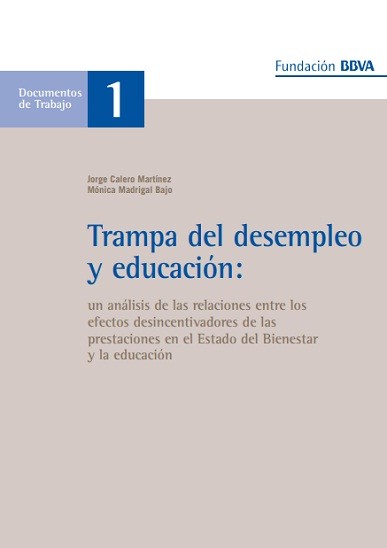
PublicationWorking Papers
Trampa del desempleo y educación
Un análisis de las relaciones entre los efectos desincentivadores de las prestaciones en el Estado de Bienestar y la educación
This study explores the relationship between education and unemployment and the role of the unemployment trap in that relation. The main distinctive element compared to other studies is the introduction of the educational level as the central variable in the analysis.
The empirical analysis, focused on Spain, was carried out with microdata from the 1994 and 1995 waves of the ECHP. A logistic discrete duration model was applied to two differentiated samples of unemployed individuals with previous job experience.
Results show that the educational level has two types of effects on the conditioned probability of exit from unemployment: on the one hand, the educational level has a negative incidence (through the reservation wage) on the probability of accepting a job offer; on the other hand, it has an isolated, positive effect on the probability of receiving a job offer. We conclude that the former is larger than the latter: the conditioned probability of exit from unemployment declines as the educational level increases.
